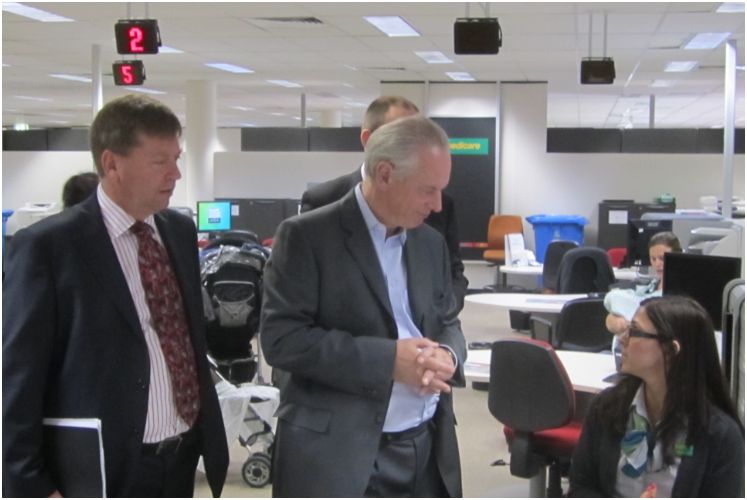Advanced modern economies face similar challenges. How can governments respond to rising consumer expectations and ageing populations, against a backdrop of financial pressures? Cabinet Office Minister Francis Maude came to discuss some of these issues with Australian counterparts.
He visited a CentreLink in Sydney, the shopfront offices where Australians go for Medicare, social security and a range of other transactions, and met staff and senior officials there. Later, in Canberra he followed this up with the Social Services Minister, Senator Kim Carr. Australia is increasingly focused on delivering services online to its citizens, like the UK’s Digital by Default strategy.
Mr Maude outlined some of the measures that the British government is taking to control spending, including using its cross-government purchasing power to lower procurement costs, and shared services centres across different departments. Senator Penny Wong, Finance Minister, and her senior officials described how Australia was doing some similar things.
As Minister for the Civil Service, Mr Maude was also interested to explore the way senior officials are appointed and tasked, and the relations between ministerial offices and their departments. In addition to the government ministers, he met a range of senior Liberal politicians, including former PM John Howard, Tony Abbott, Joe Hockey, Malcolm Turnbull, Andrew Robb and Arthur Sinodinos. He heard the officials’ perspective from the Head of the Public Service, the Public Service Commissioner, the acting head of the NSW Public Service, and some of their colleagues. One of the most noticeable differences between our systems is that Australian ministers are based in Parliament, rather than in their departments. They also tend to have significantly larger private office staff, mostly political appointees.
Some of these domestic policy issues are not things that the High Commission is routinely tasked to work on. But they are important matters for the UK, so we were pleased to be able to arrange the visit. In this kind of area both sides have much to learn from each other.

